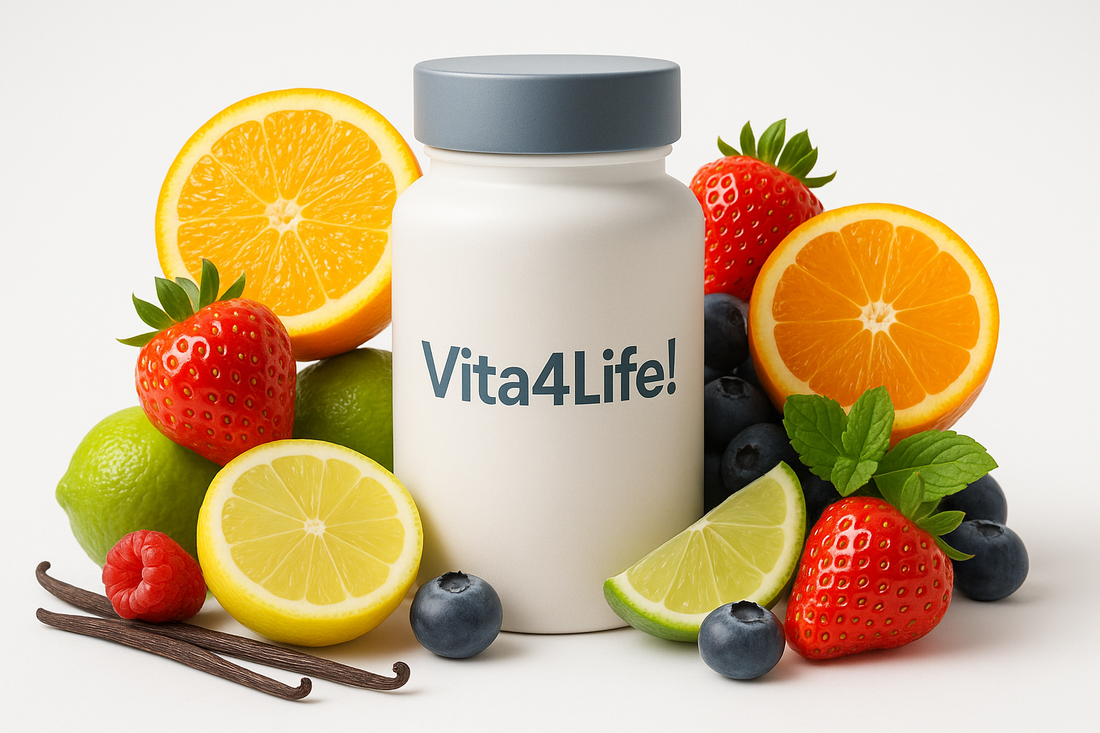
Flavor System Innovations: Overcoming Supplement Fatigue
Share
The Challenge of Supplement Fatigue
Nutritional supplements play a vital role in maintaining health, especially for individuals with higher nutrient needs, such as bariatric surgery patients. However, many people struggle with “supplement fatigue” — the gradual decline in willingness to take supplements due to unpleasant taste, gritty texture, or overwhelming aftertastes. Research shows that poor palatability can significantly reduce adherence to long-term supplementation programs, impacting overall health outcomes (Nutrition Reviews, American Journal of Clinical Nutrition).
This challenge is especially pronounced in bariatric nutrition, where altered taste perception and food sensitivities after surgery may increase aversion to standard supplement formulations (Obesity Surgery Journal).
Why Taste Matters in Supplement Adherence
Consistency is key to supplement effectiveness. Studies highlight that palatable supplements lead to higher adherence rates, which in turn improves nutritional status and long-term patient outcomes (BMJ, JAMA).
- Negative Experience: Bitter flavors or chalky textures discourage regular use.
- Altered Taste Sensitivity: Bariatric patients often report heightened taste perception, making them more sensitive to bitterness or metallic aftertastes.
- Psychological Impact: Poor taste can create negative associations, reinforcing non-adherence.
Innovations in Supplement Flavor Systems
To combat supplement fatigue, researchers and manufacturers are increasingly investing in flavor system innovations designed to improve palatability without compromising nutrient efficacy.
1. Advanced Flavor Masking Techniques
Modern formulations use flavor-masking compounds that neutralize bitterness and metallic notes from minerals like iron and zinc. Microencapsulation also helps coat active ingredients, reducing aftertaste and improving swallowability.
2. Sensory Science in Supplement Design
The field of sensory science applies principles from food technology to supplements, focusing on taste, aroma, and mouthfeel. Optimizing these sensory factors has been shown to improve adherence and satisfaction (NIH).
3. Consumer-Centered Flavor Profiles
Supplements are increasingly being designed with customized flavor options, ranging from natural fruit extracts to mild herbal blends. This allows patients to choose profiles that align with their preferences, reducing aversion and improving long-term compliance.
Future Directions in Flavor Technology
Emerging trends suggest that taste-enhanced supplements will become standard in the coming years. Potential breakthroughs include:
- Natural Flavor Enhancers: Plant-based extracts to improve palatability.
- Encapsulation Technology: Protecting nutrients while masking bitter notes.
- Personalized Nutrition: Tailoring supplement flavors to individual genetic taste profiles.
These advances may redefine how patients experience supplementation, particularly for those who rely on them long-term after bariatric surgery or other medical interventions.
Conclusion
Supplement fatigue is a significant barrier to adherence, especially for bariatric patients who face unique taste sensitivities. Advances in flavor masking, sensory science, and consumer-driven design are paving the way for supplements that are both effective and enjoyable to take. By addressing taste alongside nutrient content, the next generation of supplements has the potential to transform adherence rates and improve long-term health outcomes.
Medical Disclaimer:
This article is for educational purposes only and should not be considered medical advice. Always consult with a qualified healthcare provider before making changes to your supplement routine.
